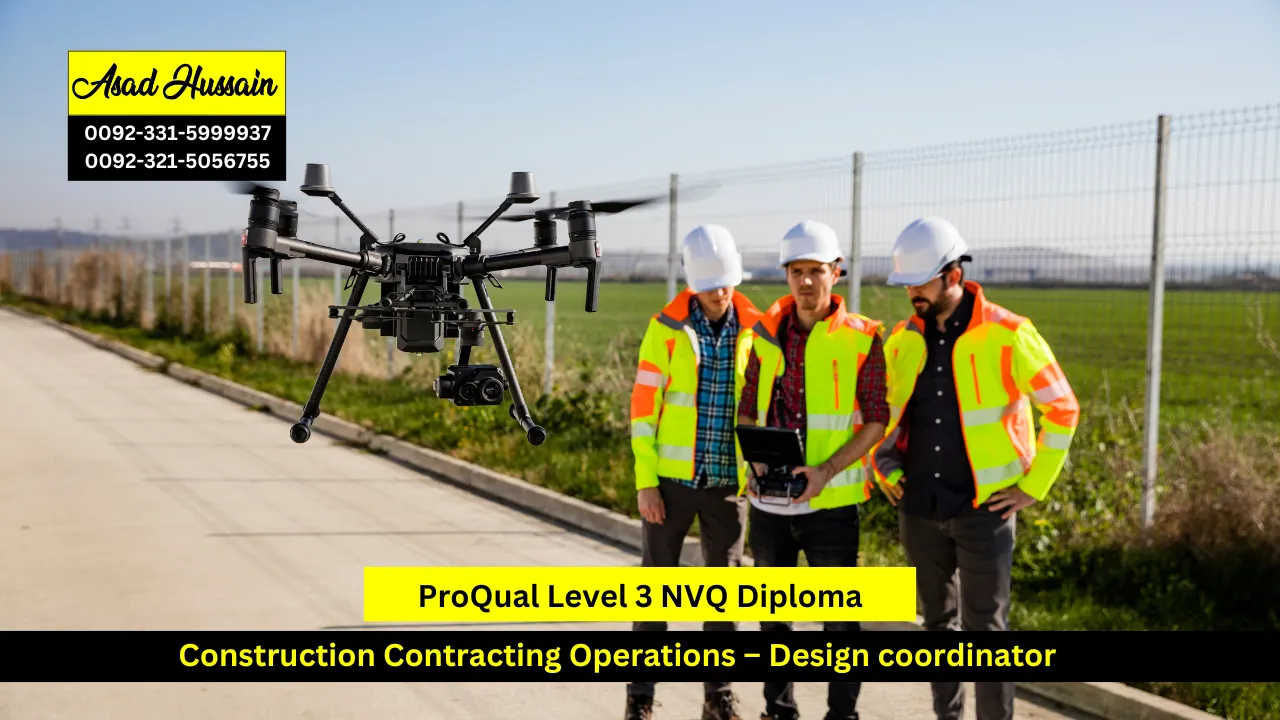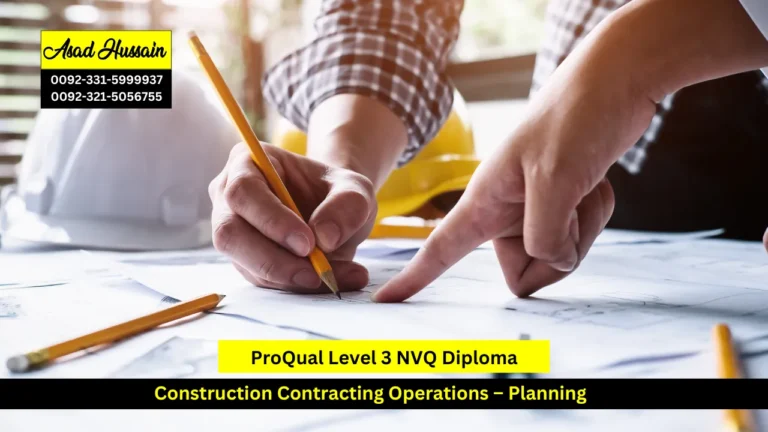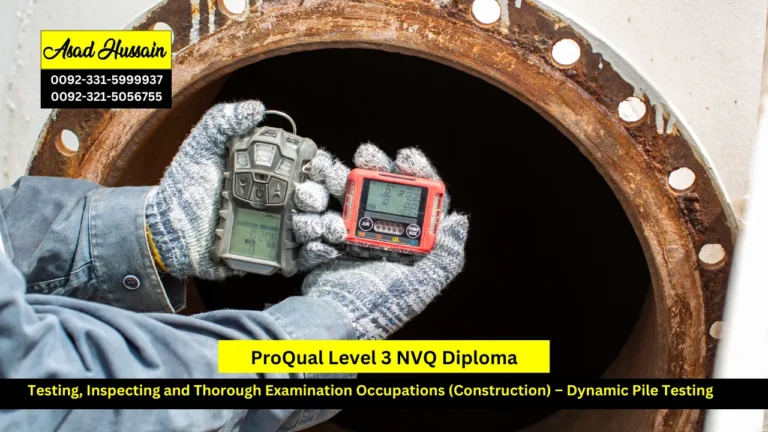This industry-focused qualification is designed for professionals actively coordinating design information within live construction environments. It centres on the practical application of skills, validating your competence in managing the design process between clients, project managers, architects, and on-site construction teams. The diploma assesses your real-world ability to ensure design information is accurate, coordinated, and delivered effectively to facilitate seamless project progression.
The course structure is built around the National Occupational Standards, ensuring the learning outcomes directly reflect the critical responsibilities of a Design Coordinator. You will gather a portfolio of evidence from your daily work activities, demonstrating your proficiency in areas such as resolving design conflicts, managing information flow, and ensuring design compliance with specifications. This evidence-based approach guarantees that the certification represents genuine, on-the-job capability rather than just theoretical knowledge.
The ProQual Level 3 NVQ Diploma in Construction Contracting Operations – Design Coordinator ultimately serves to formally recognise your specialist expertise, enhancing your professional credibility within the construction sector. By achieving this diploma, you validate your crucial role in bridging design and construction, a key function for improving project efficiency, reducing errors, and contributing to successful project delivery. It is a mark of a competent practitioner in the vital field of design coordination.
Program Highlights
Mandatory Units
- Operate health, safety and welfare systems in construction
- Prepare programmes and schedules of work in construction
- Operate project information systems in construction
- Develop and maintain working relationships and personal development in construction
- Integrate and control project design information in construction
- Optional Units –
- Prepare for, collect, analyse and present survey data in construction
- Record the condition of property in construction
- Prepare for work operations in construction
- Prepare for and carry out physical testing in construction
- Prepare proposals and obtain feedback for the provision of products and services in construction
- Prepare and process invitations to tender in construction
- Prepare estimates, bids and tenders in construction
- Monitor, maintain and improve supplies of materials in construction
- Recommend and monitor supplies of plant and equipment in construction
- Prepare drawings and schedules in construction
- Assess, plan and monitor project methods and progress in construction
- Prepare and monitor costs and accounts in construction
- Implement contract work in construction
- Establish and maintain the dimensional control of construction works
Entry Requirement
To be eligible for the ProQual Level 3 NVQ Diploma in Construction Contracting Operations – Design Coordinator, candidates must meet the following criteria:
- Age & Status: Applicants must typically be at least 19 years of age and be employed in a relevant role, as this is a work-based assessment qualification.
- Educational Background: While no formal academic qualifications are mandatory, possessing related prior learning such as a Level 2/3 Diploma in Construction, a BTEC in Construction and the Built Environment, or similar vocational certificates is advantageous and demonstrates foundational knowledge.
- Language Proficiency: Candidates must possess a sufficient command of English—both written and spoken—to understand complex technical information, compile a comprehensive portfolio of evidence, and engage with assessors effectively.
- Work Experience: This is the most critical requirement. Applicants must be in current employment within a construction environment, performing Design Coordinator duties or a closely related role, to generate the necessary workplace evidence for assessment.
Prospective learners are encouraged to discuss their specific role and experience with a course advisor to confirm their suitability for this competency-based pathway.
Learning Outcomes
Operate health, safety and welfare systems in construction
- Apply legal and regulatory frameworks related to health, safety, and welfare.
- Implement effective systems to manage workplace safety.
- Promote a culture of safety and wellbeing on site.
- Monitor and maintain compliance with health and welfare procedures.
Prepare programmes and schedules of work in construction
- Develop logical project timelines based on resources and constraints.
- Utilise planning tools to create efficient construction schedules.
- Identify key milestones and critical paths in project delivery.
- Adjust and update schedules to reflect project changes.
Operate project information systems in construction
- Use digital systems to manage and disseminate project information.
- Maintain accurate and up-to-date documentation throughout the project lifecycle.
- Facilitate effective communication between project stakeholders.
- Ensure information security and proper archiving of project data.
Develop and maintain working relationships and personal development in construction
- Establish positive and professional relationships with team members and stakeholders.
- Apply interpersonal and communication skills in collaborative environments.
- Reflect on personal skills and performance to identify development areas.
- Create and follow a personal development plan to support career growth.
Integrate and control project design information in construction
- Collect and coordinate all relevant design inputs across project teams.
- Review and verify accuracy and consistency of design documents.
- Ensure version control and timely distribution of design updates.
- Support alignment of design data with construction execution.
Prepare for, collect, analyse and present survey data in construction
- Plan and execute accurate construction site surveys.
- Analyse collected data using standard methods and tools.
- Interpret survey results to support design or project planning.
- Present findings using charts, maps, and technical documentation.
Record the condition of property in construction
- Inspect and assess the condition of structures and components.
- Document observed defects and deterioration effectively.
- Prepare comprehensive reports supported by photographic or measured evidence.
- Recommend appropriate repair or maintenance strategies.
Prepare for work operations in construction
- Identify resources and methods needed for specific work activities.
- Plan for logistics, equipment, and workforce coordination.
- Establish procedures and communicate work requirements.
- Monitor readiness and resolve potential operational issues.
Prepare for and carry out physical testing in construction
- Select appropriate tests for construction materials or structures.
- Follow procedures to conduct reliable and safe testing.
- Record test data and evaluate results for compliance.
- Use test outcomes to inform construction decisions.
Prepare proposals and obtain feedback for the provision of products and services in construction
- Develop structured proposals for construction products or services.
- Engage with clients and stakeholders to obtain relevant feedback.
- Refine proposals based on feedback and project needs.
- Present and justify proposals in a professional context.
Prepare and process invitations to tender in construction
- Draft clear and comprehensive tender documentation.
- Organise and manage the tender process efficiently.
- Assess responses for compliance and value.
- Ensure transparency and accountability in contractor selection.
Prepare estimates, bids and tenders in construction
- Calculate cost estimates for labour, materials, and overheads.
- Prepare competitive and well-documented bids.
- Align bids with client requirements and industry standards.
- Submit tenders according to defined procedures.
Monitor, maintain and improve supplies of materials in construction
- Track usage and inventory of materials on site.
- Coordinate timely procurement to avoid project delays.
- Identify and reduce material wastage.
- Recommend strategies to optimise supply chains.
Recommend and monitor supplies of plant and equipment in construction
- Assess project needs for plant and equipment.
- Recommend suitable options based on performance and cost.
- Monitor usage and maintenance of equipment.
- Maintain records and ensure timely availability.
Prepare drawings and schedules in construction
- Produce detailed technical drawings aligned with project specifications.
- Develop schedules that reflect work phases and timelines.
- Coordinate drawings with design and construction teams.
- Use software tools for drafting and scheduling.
Assess, plan and monitor project methods and progress in construction
- Evaluate construction methods for efficiency and compliance.
- Develop method statements and risk assessments.
- Track project progress and implement corrective actions.
- Report on project status and performance indicators.
Prepare and monitor costs and accounts in construction
- Create accurate cost plans and budgets.
- Track actual expenditures and manage financial records.
- Identify variances and recommend corrective action.
- Prepare financial reports to support decision-making.
Implement contract work in construction
- Interpret contract terms and apply them to on-site operations.
- Coordinate works in line with contractual obligations.
- Resolve conflicts or non-compliance issues.
- Monitor performance to ensure delivery of contractual outcomes.
Establish and maintain the dimensional control of construction works
- Set out construction works to exact design specifications.
- Use measurement equipment to verify tolerances and dimensions.
- Document and report on dimensional accuracy.
- Adjust and control works based on ongoing measurements.
Target Audience
This competency-based qualification is specifically designed for professionals who are actively managing and coordinating design information within the construction process. It is ideal for individuals who act as the crucial link between design teams, clients, and construction personnel on live projects. Specifically, this diploma is for:
- Design Coordinators and Design Managers seeking formal recognition of their skills.
- Assistant Design Managers or Technicians aiming to step into a full coordination role.
- Architectural Technologists and BIM Coordinators involved in the integration and management of design information.
- Site Managers or Project Managers with significant design interface responsibilities.
- Experienced Site Engineers or Foremen transitioning into a pre-construction and design liaison position.
In summary, this NVQ validates the competence of those who ensure design projects are technically sound, clash-free, and effectively communicated for successful implementation on site, bridging the gap between the drawing board and physical construction.







